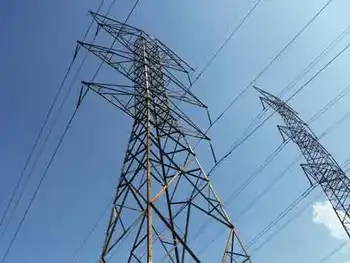Ameren pilot project explores converting hog manure gas to electricity
CARLYLE, ILLINOIS - Ameren's Renewable Energy Department is working with the Illinois Environmental Protection Agency and the University of Illinois-Chicago to study the feasibility of using methane gas from hog manure to generate heat and power at The Maschhoffs Inc. farm in Carlyle, Ill.
Ameren Renewables Executive Rich Wright says Ameren's Renewable Energy team has been exploring a number of renewable energy options - but this is the first project ready to be announced publicly. The team is made up of representatives of AmerenEnergy Fuels and Services, the company's non-rate-regulated fuels company, working with employees from other parts of Ameren.
Ameren contracted with Roseville, Minn.-based energy consultants Sebesta Blomberg & Associates to conduct the study, which will conclude at the end of May 2007. If the results are favorable, Ameren would work to have an anaerobic digester and generator installed at the site by the end of the year.
Manure collected from the Maschhoff farm would be stored in the digester. Methane gas would then be siphoned off the manure and used to power the generator, which may have the potential to produce between 200 and 400 kilowatts of electricity. The electricity would be used by the farm, which has a peak electric demand of over 700 kilowatts. The heat created by the generator would be used to heat the digester.
"It would be a good deal for The Maschhoffs because it would collect a waste byproduct - methane gas - from the manure and convert it to energy for use on the farm," says Wright.
The project also has a range of benefits for Ameren.
"The primary benefit would be renewable energy credits, or CO2 offset credits, that Ameren could obtain to use in responding to various future government initiatives," says Ameren Strategic Analyst Paul Pike. Pike notes that as a "greenhouse gas," methane is 21 times as potent as carbon dioxide (CO2), meaning that each one-ton emission of methane gas captured and converted to energy equals 21 tons of CO2 not released into the environment. "The fact that these energy or offset credits are locally generated is also a benefit to the region rather, than buying credits from another state or country," Pike says.
"But no matter how Ameren would benefit, the project is significant because it shows Ameren's growing commitment to finding innovative ways of generating renewable energy," Wright adds.
Ameren worked with the Illinois EPA to select the Maschhoff site after considering a number of other swine farms in the state. As one of the largest family-owned pork production network in the country, The Maschhoffs Inc. is committed to producing high-quality pork in environmentally friendly confinement facilities. Illinois currently ranks No. 5 nationally in hog production, and Wright says the Illinois EPA had been looking for ways to promote a CO2 sequestration program that rewards farmers for eliminating greenhouse gases that are created by hog waste.
"We have enjoyed working with Ameren on this interesting and important project," says Richard Breckenridge of the Illinois EPA. "It's great when government agencies can work with private industry on forward-looking projects that have the potential to provide critical resources while benefiting the environment."
Steffen Mueller of the University of Illinois at Chicago's Energy Resources Center says the university will provide approximately 12 percent of the funding for the feasibility study with Ameren supplying the remainder.
"This project is consistent with our mission to promote efficient on-site power generation," says Mueller. "Our hope is that the findings of the study will not only allow this project to move forward, but will provide critical data needed to complete similar projects in the state." If it moves forward, Ameren would work with The Maschhoffs to pursue an Illinois Department of Commerce and Economic Opportunity grant and other funds to support development of the digester and generator, Wright says.
AmerenEnergy Fuels & Services provides fuel and energy-related products and services for Ameren and its affiliated operating companies. Ameren companies serve 2.4 million electric customers and nearly 1 million natural gas customers in a 64,000-square-mile area of Missouri and Illinois.
Related News

Atlantic grids, forestry, coastlines need rethink in era of intense storms: experts
HALIFAX - In an era when storms with hurricane-force winds are expected to keep battering Atlantic Canada, experts say the region should make major changes to electrical grids, shoreline defences and even the types of trees being planted.
Work continues today to reconnect customers after post-tropical storm Dorian knocked out power to 80 per cent of homes and businesses in Nova Scotia. By early afternoon there were 56,000 customers without electricity in the province, compared with 400,000 at the storm's peak on the weekend.
Recent scientific literature says 35 hurricanes -- not including post-tropical storms like Dorian -- have made landfall in…




